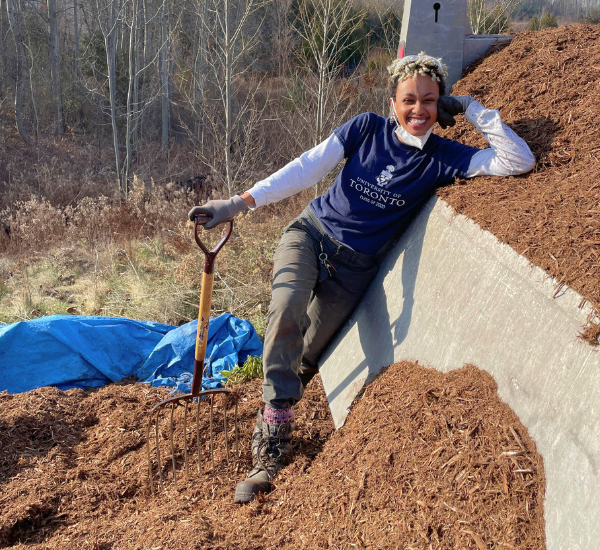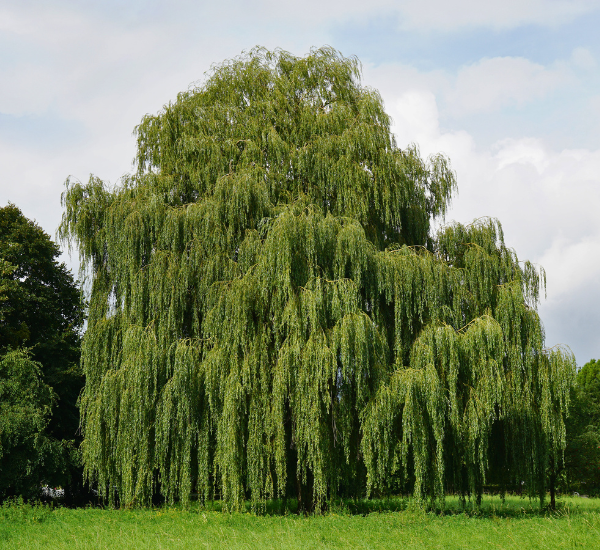
What is your interest and motivation in serving for LEAF as a board member?
I care about trees and admire the inherent value they hold as members of our ecosystem. My principal interest in joining this organization’s board is to sustain and expand diverse civic participation in the stewardship of our urban forest for generations to come. In the past two decades, we’ve witnessed rapid development in Toronto’s built environments. While building infrastructure is critical to supporting people, urban planning can sometimes further reproduce the disruptive legacies of settler-colonialism on the natural world. My background in public history, community arts and horticulture make me attentive to the social and cultural value of native tree communities and I’m excited to work with LEAF to continue to advance the interests of this incredible living network.
What experience do you bring to this role?
For the past decade I’ve been involved in various prosocial initiatives ranging from education outreach, placemaking heritage projects, grassroots recreation programming, community engagement and mutual aid fundraising.
I have an academic background in history, diaspora studies and horticulture. While I have worked in restoration tree planting, my greatest experience comes from my relationships to the diverse community of artists, earthworkers, knowledge keepers, organizers and city builders who are passionate about restoring right relations with the natural environment.

What do you see as some of the most pressing issues facing urban forests?
There are many concrete threats to our urban forest, some of which have to do with the towering cranes that hold our cities green spaces hostage. For me, I understand most of these issues in their cultural paradigm and in doing so, locate a set of values as the most pressing threat to our canopy.
The principal value we must confront to promote a healthy urban forest is the commodification of land. This legacy of settler-colonialism contributes to fragmentation of the forest ecosystem, tree inequity in marginalized neighbourhoods, and reductions in public green space and increase in privatization solutions.
The logic outpours from this cultural value underpins many of the proposed climate actions we see, and I remain cautious of how we may reproduce colonial relations in our mitigation and adaption efforts.
How do you see LEAF currently, or potentially, addressing some of these issues?
LEAF’s programs centre the engagement of everyday people in growing and sustaining our urban forest. While plantings on private lands are integral to increase the tree canopy, sustaining these trees requires mass participation.
Akin to trends we see in urban gardening, and Indigenous land back initiatives, I’m proud to see LEAF’s tree planting programs move towards community stewardship of trees on public and private lands.
This is the cultural shift we need to participate in— moving away from a conservation practice in urban forest management and toward a partnership approach, whereby people living in and around the urban forest, view themselves as active participants in the renewal of the forest. In this way, civic participation in stewardship practices can also facilitate a social repositioning towards ‘right relations,’ a concept which acknowledges the ‘all my relations’ philosophy found in many Indigenous cultures (Our Living Waters).
We are thrilled to have milen bring their passion, experience and leadership to the LEAF Board! Their dedication to environmental justice and urban forest conservation will help shape our work and strengthen our impact in the years ahead.
Janet McKay is the Executive Director at LEAF.
milen melles is an Urban Forest Champion - someone who has made a positive impact on our urban forest through their professional, volunteer or personal efforts.
Read more our Urban Forest Champion blog series here.
